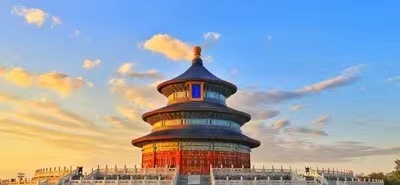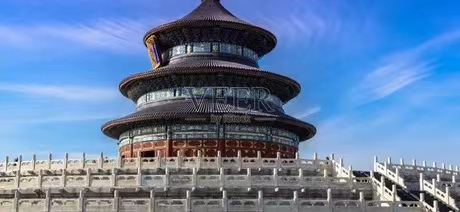In Chinese the word for alcohol "jiu" is used to mean all types of alcoholic beverages, from 'pijiu' (beer) to liquors (just called 'jiu') to grape wine ('putao jiu'). The same character is used in Japanese and Korean, for that matter. This lumping together of all intoxicating beverages gives us great insight into the traditional use for alcohol, intoxication. Even in modern China alcoholic beverages are generally classed by the general population by how much intoxication it delivers for the money. From this point of view table wine is at the bottom rung of the consumer preference list, with brandy being much higher.

History of Chinese wine
In China, wine could also be called the "Water of History" because stories about wine can be found in almost every period of China's long story. The origins of the alcoholic beverage from fermented grain in China cannot be traced definitively. It is believed to have 4,000 years history. A legend said that Yidi, the wife of the first dynasty's king Yu (about 2100 BC) invented the method. At that time millet was the main grain, the so-called "yellow wine", then rice became more popular. It was not until the 19th century that distilled drinks become more popular. Traditionally, Chinese distilled liquors are consumed together with food rather than drunk on their own. Although China has a 6,000 year history in grape growing, and a 4,000 year history in wine making, it was not until this century that Chinese wine was recognized in the West.
Wine and Chinese people
Without a doubt, wine occupies an important place in the culture and life of the Chinese people. Wine was intimately connected with most Chinese men of letters. It was also an inseparable part of the life of ordinary Chinese people. The banquets of ancient emperors and kings could not take place without it. Every sort of wine vessel thus became an important kind of sacrificial object. Inscriptions on bones and tortoise shells as well as bronze inscriptions preserve many records of Shang-era people worshiping their ancestors with wine. There were many famous Chinese poet or artist who crafted their masterpieces after getting "drunk". The famous poet Li Bai of the Tang Dynasty (AD 618-907) is known as the "Immortal of Wine" because of his love of alcohol. Guo Moruo, a modern scholar, compiled statistics about Li's poems and found 17 per cent of them were about drinking. Early writers liked drinking and thought it an elegant way to pass the time. Apart from the taste of the drink, they also concentrated on the process of drinking. They created many games to go with drinking sessions involving a knowledge of history, literature, music and poetry. In ancient times, before a battle, a general would feast his soldiers with alcohol and meat. If they won the battle, they would be rewarded with good wine. If a warrior fell in battle, his fellows would scatter wine on the ground as part of a memorial ceremony.

Wine culture in China today
Ordinary Chinese people today have always just used alcohol to help them celebrate the happiness in their lives. In China, a banquet known as "Jiu Xi" means an alcohol banquet and the life of every person, from birth to death, should have pauses for drinking banquets starting a month or 100 days after a baby's birth when the parents invite people in for a drink. When someone builds a new house, marries, starts a business, makes a fortune or lives a long life, he should invite people in for a drinking session. In modern times it is a pity that the games that go with drinking are not the elegant ones of the past that involved poetry or music. Today, drinkers just play simple finger-guessing games along with a lot of heavy drinking. It also seems today that friendship depends only on the volume of drink being consumed. "If we are good friends, then bottoms up; if not, then just take a sip" is a common phrased exchanged during gatherings.



